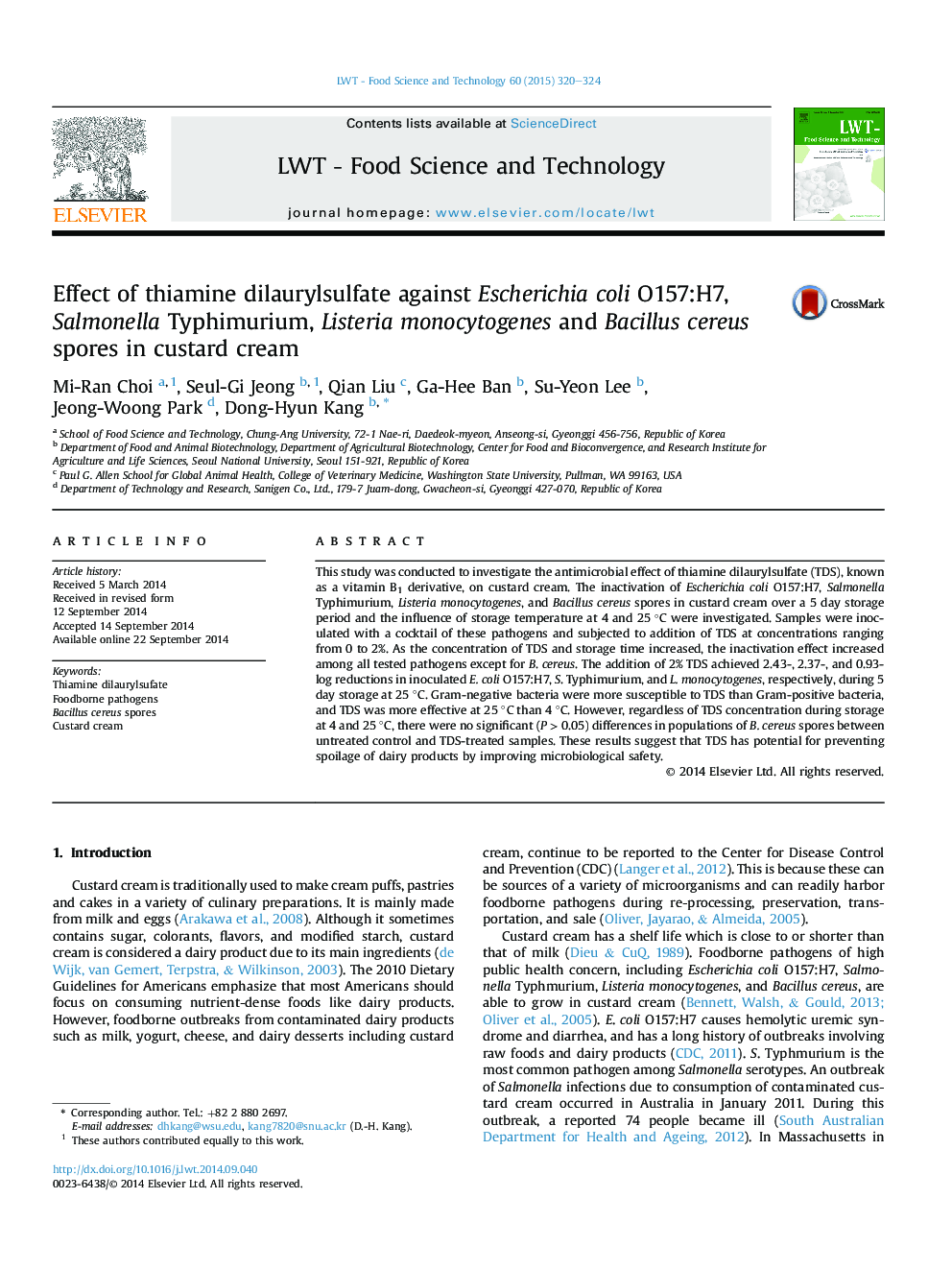| کد مقاله | کد نشریه | سال انتشار | مقاله انگلیسی | نسخه تمام متن |
|---|---|---|---|---|
| 6402894 | 1330891 | 2015 | 5 صفحه PDF | دانلود رایگان |

- Custard cream were inoculated with major foodborne pathogens and Bacillus cereus spores.
- TDS significantly reduced all the pathogens except for B. cereus spores.
- Gram-positive bacteria were more resistant to TDS than Gram-negative bacteria.
- Pathogen inactivation was dependent on concentration of TDS and storage temperature.
This study was conducted to investigate the antimicrobial effect of thiamine dilaurylsulfate (TDS), known as a vitamin B1 derivative, on custard cream. The inactivation of Escherichia coli O157:H7, Salmonella Typhimurium, Listeria monocytogenes, and Bacillus cereus spores in custard cream over a 5 day storage period and the influence of storage temperature at 4 and 25 °C were investigated. Samples were inoculated with a cocktail of these pathogens and subjected to addition of TDS at concentrations ranging from 0 to 2%. As the concentration of TDS and storage time increased, the inactivation effect increased among all tested pathogens except for B. cereus. The addition of 2% TDS achieved 2.43-, 2.37-, and 0.93-log reductions in inoculated E. coli O157:H7, S. Typhimurium, and L. monocytogenes, respectively, during 5 day storage at 25 °C. Gram-negative bacteria were more susceptible to TDS than Gram-positive bacteria, and TDS was more effective at 25 °C than 4 °C. However, regardless of TDS concentration during storage at 4 and 25 °C, there were no significant (P > 0.05) differences in populations of B. cereus spores between untreated control and TDS-treated samples. These results suggest that TDS has potential for preventing spoilage of dairy products by improving microbiological safety.
Journal: LWT - Food Science and Technology - Volume 60, Issue 1, January 2015, Pages 320-324